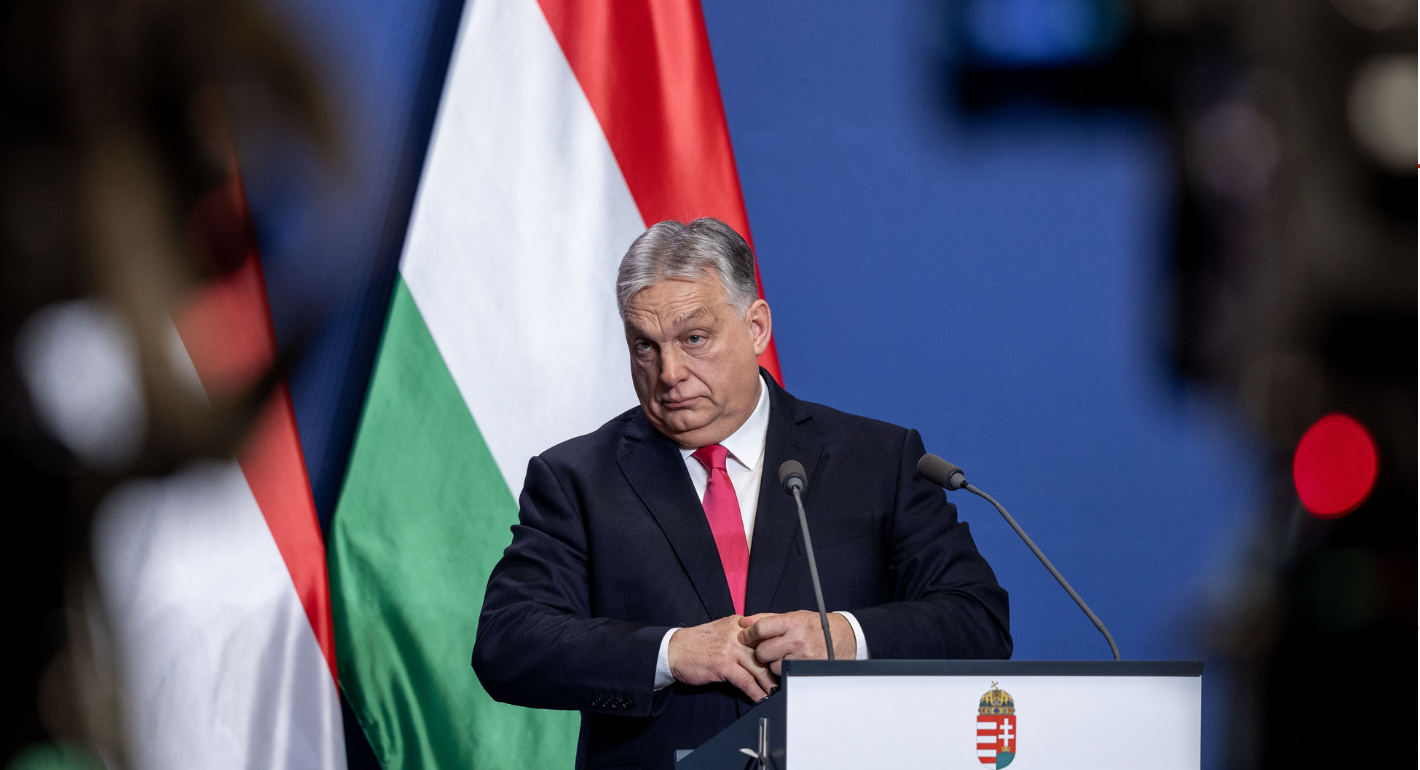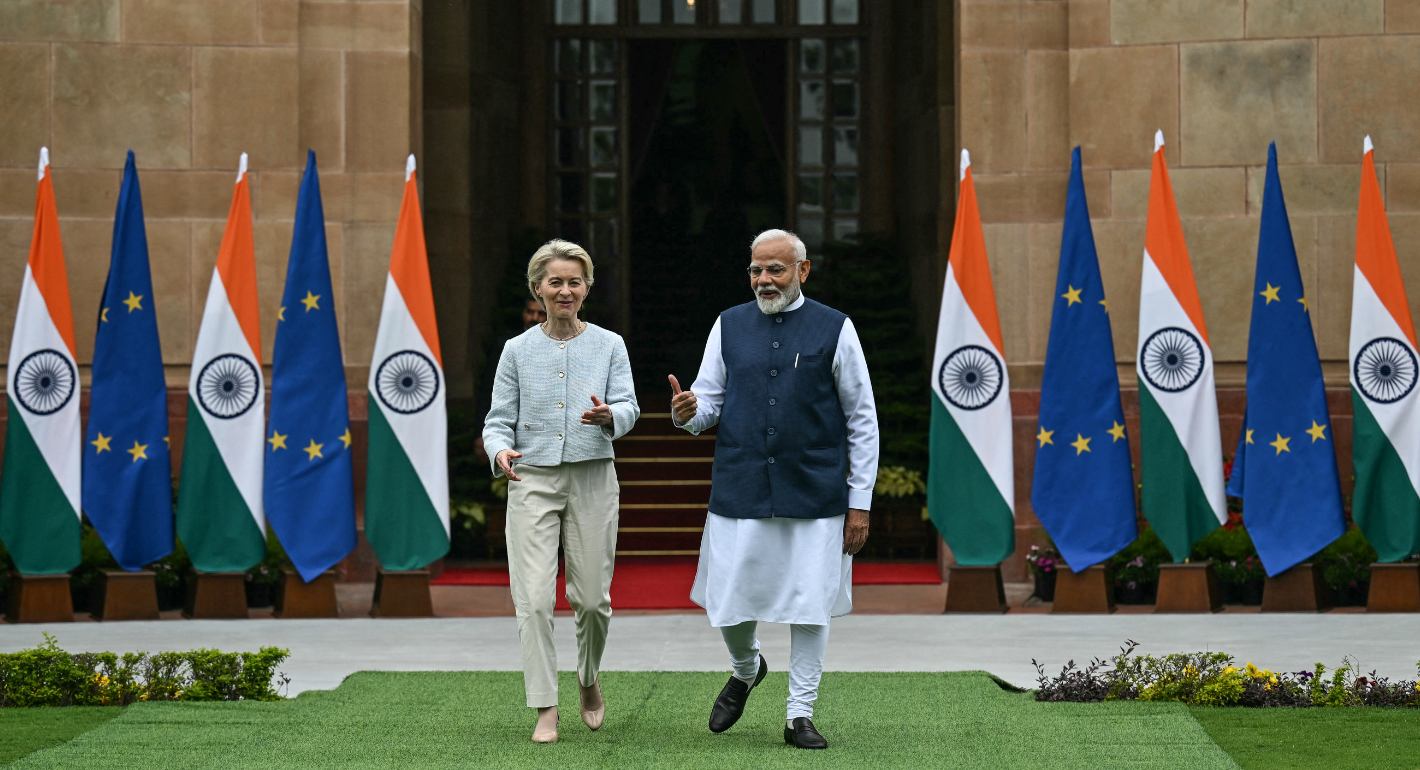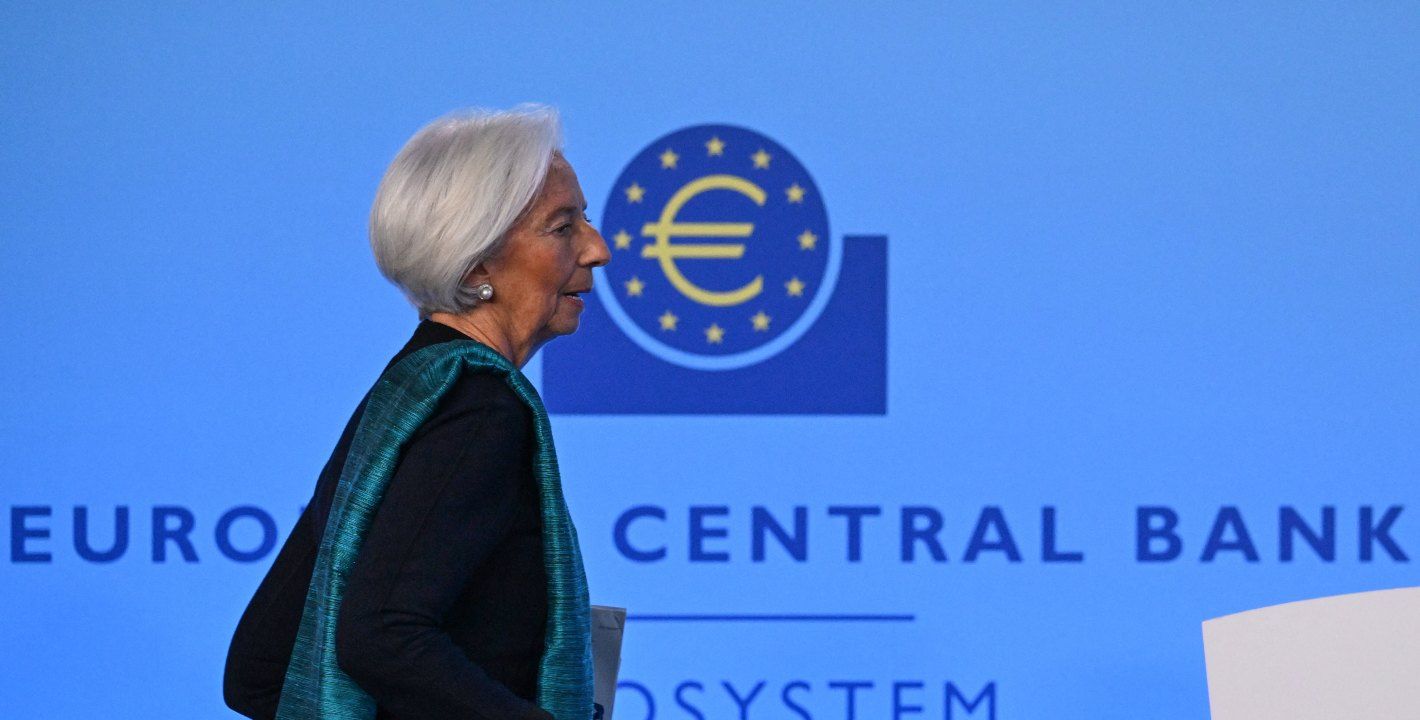Marine Le Pen, the leader of France’s far-right National Rally (RN) party, sat stone-faced as the presiding judge read out the judgment against her and her party on March 31. On hearing the guilty verdict, she stormed out of the room, stomped past the media crowd, and left the courthouse without a word. Her angry shock confirmed that the party, and Le Pen herself, had been in denial over the probability of being found guilty.
While no one outside the party doubted that the judges would rule against her, few thought they would be so bold. They sentenced her to four years in prison, a €100,000($111,000) fine, and a five-year ban from elected office, effective immediately. Should the sentence stick—Le Pen has lodged three appeals—it would prevent her from running in what would be her fourth and last bid for the French presidency in 2027. She is currently leading the polls.
Whatever Le Pen may argue, she has not been singled out by a politicized judiciary and is not alone in having her presidential hopes dashed. Similar sentences prevented the conservative favorite François Fillon from running in 2017, for example. Ironically, the RN has consistently called for tougher sentencing. Le Pen herself is on the record, in television footage that will haunt her forever, calling for life bans for anyone found guilty of misuse of public funds. In light of the overwhelming evidence against the RN and Le Pen, the sentence is not unusually harsh.
But the ruling comes at a time when the national and international context suggest that it could be exploited by illiberal forces—including pro-Russia and Trumpian actors—to weaken Europe’s geopolitical unity in countering Russian aggression and American bullying.
The RN’s accusations of a politicized judiciary could be one more strand in the orchestrated assault on democratic institutions that is already sweeping other advanced democracies. And, as France is called on to play a key foreign policy role—and national and European cohesion are crucial—the verdict could function as an opening for MAGA contagion. It could be another opportunity for billionaire businessman Elon Musk and others to provide oxygen and support to the far right in the EU—thus fanning the flames of division, weakening Europe’s liberal democratic norms and values, and sapping its resilience in the face of the Russian threat.
The verdict could also operate as fuel for the RN, regardless of whether Le Pen is on the ballot in 2027. Le Pen and her entourage immediately reached for the populist playbook, telling RN voters that the option of voting for Le Pen is a fundamental democratic right that has been trampled by judges who are meddling in politics and purposely undermining her.
Some European populists, as well as their supporters at the highest levels of the U.S. administration, are drawing parallels with the rejection by the European Court of Human Rights of Călin Georgescu’s appeal against a Romanian court. The court’s decision to annul Romania’s 2024 presidential election after the far-right candidate won the first round amid evidence of Russian interference is being framed as political intrusion by judges, rather than understood as protecting the democratic process.
But all is not bleak. The French ruling has highlighted that attachment to the rule of law may be more resilient than feared. According to a poll conducted on April 1, 68 percent of the French population thinks an immediate ban on running for office for embezzling public funds is a fair sentence.
It has also raised several dilemmas and vulnerabilities for far-right and Trumpian populist movements in Europe.
First, such parties have one Achilles’ heel: succession planning. Internally, the next eighteen months are likely to be rife with infighting in the RN. For some in the party’s leadership, the moment is ripe for an internal shake-up. Some even argue that it is time to turn the Le Pen page, and for them plan B is not necessarily her handpicked successor, Jordan Bardella, the party’s twenty-eight-year-old president. Enough infighting and the party’s carefully curated professional image will rapidly fade.
Second, the unleashing of violently antisystem rhetoric—such as characterizing judges as enemies of the people or vituperating against the corrupt elite targeting them—is a backward step. Echoing such Trumpian rhetoric could be costly as the U.S. president’s brand of politics has proved unappealing to French voters, including the RN’s. Thus, the party could end up wiping fifteen years of painstaking mainstreaming by sliding back into vociferous attacks on the system, weakening its appeal with a portion of its new voters.
Finally, the reactions to the first verdict and those that will follow as the appeal cases unfold, instead of creating an opening for MAGA in Europe, could serve to highlight what a poisoned chalice U.S. President Donald Trump’s election is for European far-right and populist parties. The Le Pen case illustrates this in spades, as Trump calls for France to “free Marine Le Pen” while she has to condemn his tariffs, which will impoverish her voters.
This dilemma will be replicated across Europe, and Trump’s special relationships with Hungarian President Viktor Orbán and Italian Prime Minister Giorgia Meloni are unlikely to continue to function. Populist and far-right parties in Europe will still coordinate an internal European campaign against existing institutions and elites, both European and domestic. Indeed, they do not need the United States for that. But standing firm on the rule of the law is the only way to diffuse the much-peddled accusation that the system is rigged. And that is worth standing up for.
Catherine Fieschi is a Visiting Fellow at the Robert Schuman Centre for Advanced Studies at the European University Institute and the author of Populocracy (2019).









